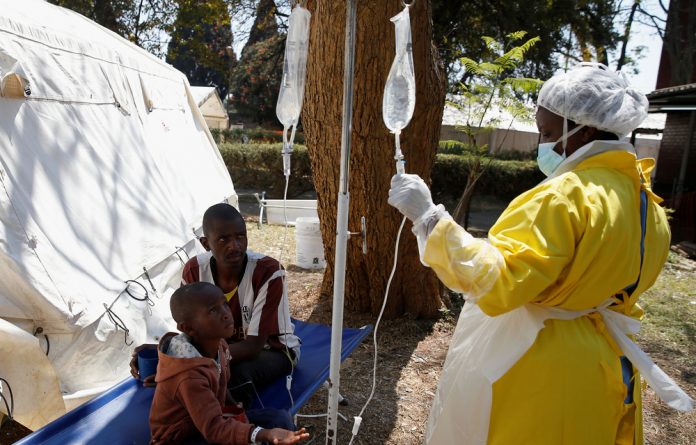Like any other disease, the coronavirus Covid-19 has in itself no meaning: it is only a micro-organism. It acquires meaning and significance from its human contexts, from the ways it infiltrates the lives of the people, from the reactions it provokes, and from the manner in which it gives expression to cultural and political values.
The danger of the coronavirus and its attendant illness, coronavirus disease, is best understood as the product of a particularly pathological intersection of political, economic, social and biological processes. Scientists primarily dwell on the latter of these. They are right to point out the novelty of the virus and the peculiar challenges its molecular biology presents for predicting the epidemiological spread of Covid-19, for grasping its immunological properties, and for developing efficacious treatments such as a vaccine. The former—i.e. the political, economic and social processes that will shape the trajectory of the epidemic—might be understood by looking carefully at other epidemics for valuable lessons. In this light, my new book, The Political Life of an Epidemic: Cholera, Crisis and Citizenship, offers some insights that might be helpful for making sense of the current pandemic and its potential impact on Africa.
My book tells the story of the Zimbabwe’s catastrophic 2008-09 cholera outbreak. It does so by tracing the historical origins of the outbreak, examining the social pattern of its unfolding and impact, analysing the institutional and communal responses to the disease, and marking the effects of its aftermath.
The epidemic began in August 2008. It first appeared in the impoverished high-density townships of Harare’s metropolitan area. The epidemic quickly spread into peri-urban and rural areas in Zimbabwe before crossing the country’s borders into South Africa, Botswana, Zambia and Mozambique. Over the course of 10 months, the disease infected over 98,000 people, claimed over 4,000 lives, and, with an exceptionally high case-fatality rate at the peak of the epidemic, Zimbabwe’s 2008 cholera outbreak has been deemed the largest and most extensive in recorded African history.
Cholera—one of the most feared infectious diseases in public health — is an acute bacterial infection of the intestine caused by the ingestion of food or water contaminated by certain strains of the organism, vibrio cholerae. The disease is characterised by acute watery diarrhoea and vomiting. In the most severe cases, it can be fatal due to rapid dehydration or water loss. When left untreated, mortality from “classical” cholera can be as high as 50 percent.






